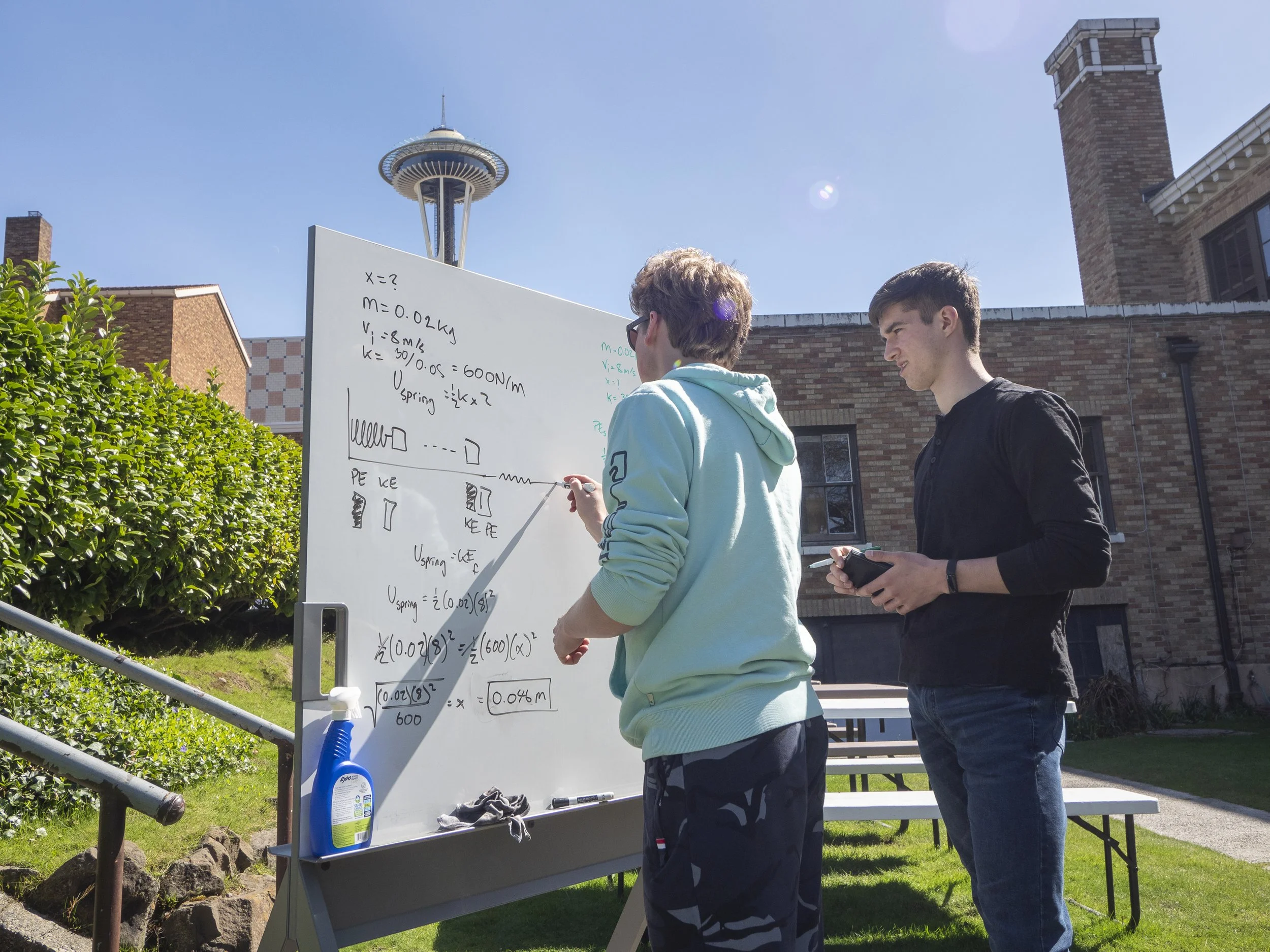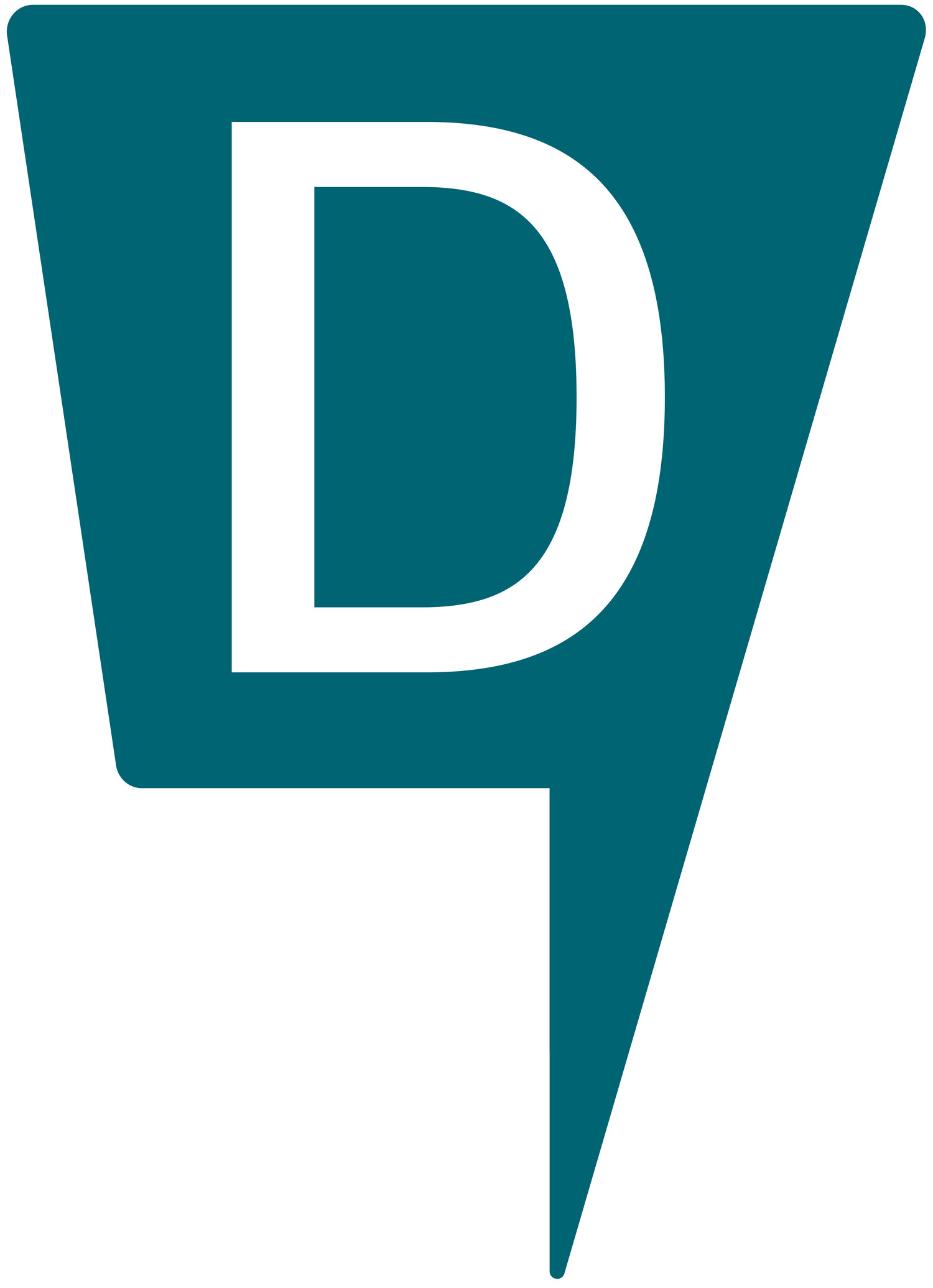
Subject Areas
During the semesters, every student takes classes in five subject areas: English, history, math/computational thinking, science, and Spanish. We believe that a strong grounding in each of these major subject areas helps students understand how different academic disciplines approach problems. Students learn not only content but also the skills and habits of mind that will enable them to successfully tackle new problems throughout their lives.
English
Our English program is focused on developing students’ writing and critical-thinking skills. Students learn to write analytical, personal, creative, and persuasive texts, and develop a strong command of the English language through a study of grammar and vocabulary.
Our courses are shaped by the concept of literature as a mirror, in which students engage in a process of self-discovery; as well as literature as a window, through which students can learn about the lives of others. Through studying a range of texts — from classical and contemporary to local and international — written by women, people of color, and LGBTQ+ writers, students learn to listen to, empathize with, and respect a variety of worldviews.
Over the course of four years, students learn to:
Write and engage in discussion at a college level.
Read texts deeply and deliberately, learning to analyze formal qualities, authorial intent, and context.
Write with clarity, persuasion, and precision.
Approach both the texts they read and the world around them with a high level of cultural competence.
Collaborate with peers who hold differing viewpoints.
History & Social Sciences
The history and social sciences program is committed to educating students who can fully participate as active citizens of the United States and the world. By combining deliberative, analytical inquiry with civic engagement, the program aims to help students become action-oriented scholars. Students move from focusing on the role and experience of the individual in the world to investigating the networks, institutions, and systems that have built, upheld, and challenged the ideals and values of the United States and people of the world. Students are challenged to explore Seattle and develop their identity as ethical citizens engaged with the community around them. Seniors are able to explore their own interests in history and social science through the Global Online Academy (GOA), where they learn alongside students and teachers from more than 60 of the best independent schools around the world. GOA courses may include Advanced Topics in Economics, Applying Philosophy to Modern Global Issues, Redressing Inequity Through Data, and Prisons and the Criminal Law.
Over the course of four years, students learn to:
Cultivate empathy and habits of ethical decision-making.
Engage and participate in civic life as an active citizen.
Demonstrate curiosity, patience, and perseverance in taking intellectual risks.
Write analytically and persuasively.
Practice and hone public-speaking skills.
Learn from, participate in, and contribute to the diversity of human experience.
Investigate the ways of power.
Develop economic literacy.
Math & Computational Thinking
The goal of the math and computational thinking program is to challenge and inspire each student to reach their mathematical potential. Using an approach rooted in contextual, relevant, real-world applications, students learn mathematics, statistics, and computer science. Students learn to trust their mathematical-reasoning ability and combine it with an expanding mathematical toolkit to creatively solve a wide array of quantitative and technical problems.
Students pursue a course of study of Algebraic, Geometric, and Computational Thinking I and II, followed by Precalculus. Seniors choose between Calculus or Statistics, both of which will prepare students for AP-level exams and college mathematics. Additionally, students can take Global Online Academy electives like Multivariable Calculus, Linear Algebra, Game Theory, Number Theory, and computer science classes in Java, Python, and game design.
Over the course of four years, students learn to:
Use math to interpret data and model phenomena in the world around them.
Think computationally, understanding how algorithms and numerical techniques can be used to solve problems.
Develop strong mastery of key concepts and procedures of algebra II, geometry, and precalculus, as well as either statistics or calculus.
Confidently access and use a wide variety of instructional supports like textbooks, online resources, peers, and instructors.
Use math as a tool to complete projects that are relevant to students.
Generate their own approaches to mathematical, quantitative, and computational problems with curiosity, creativity, and confidence.
Science
The science program seeks to spark in students a lasting enthusiasm for science. Through explorations of the natural world, students develop a deep sense of curiosity grounded in an understanding of scientific inquiry, process, and content in the life and physical sciences.
Students learn to think like scientists by actually doing science: framing meaningful questions, analyzing data, identifying patterns, and applying their understanding to different situations. In the process, students take intellectual risks by engaging in a process of experimentation and revision. In addition to traditional classroom labs and activities, students have opportunities to learn from Seattle-based scientific institutions and educational organizations, deepening the students’ understanding of career paths in science and the role that science plays in the larger world.
Over the course of four years, students learn to:
Be curious about their world and develop an interest in exploring it further.
Analyze and interpret quantitative and qualitative data.
Hone critical scientific-thinking and problem-solving skills.
Draw connections between different scientific disciplines across different scales and contexts.
Understand science content to the level needed to act as informed, responsible citizens who know how science connects to the larger world.
Spanish
Our Spanish program helps students develop the listening, speaking, reading, and writing skills they need to interpret diverse cultures and interact meaningfully and respectfully with native Spanish speakers and authentic texts. Classes are fully immersive from day one— no English is spoken — and students learn the vocabulary and grammatical structures they need to communicate appropriately in specific contexts and situations. Through exposure to the diverse cultures of the Spanish-speaking world, students enhance their cultural awareness, literacy, and understanding.
Over the course of four years, students learn to:
Understand different perspectives; interact respectfully with cultures other than their own; and cultivate meaningful relationships with people that have different cultural frameworks.
Demonstrate cultural awareness, including knowledge of themselves and the cultural lenses they bring to interactions.
Communicate effectively and solve problems in the Spanish language and in Spanish-speaking cultures.
Develop resilience when faced with unknown situations.
Attain a level of language proficiency that allows effective communication with native Spanish speakers in a wide variety of contexts.
Develop lifelong curiosity about other cultures.

